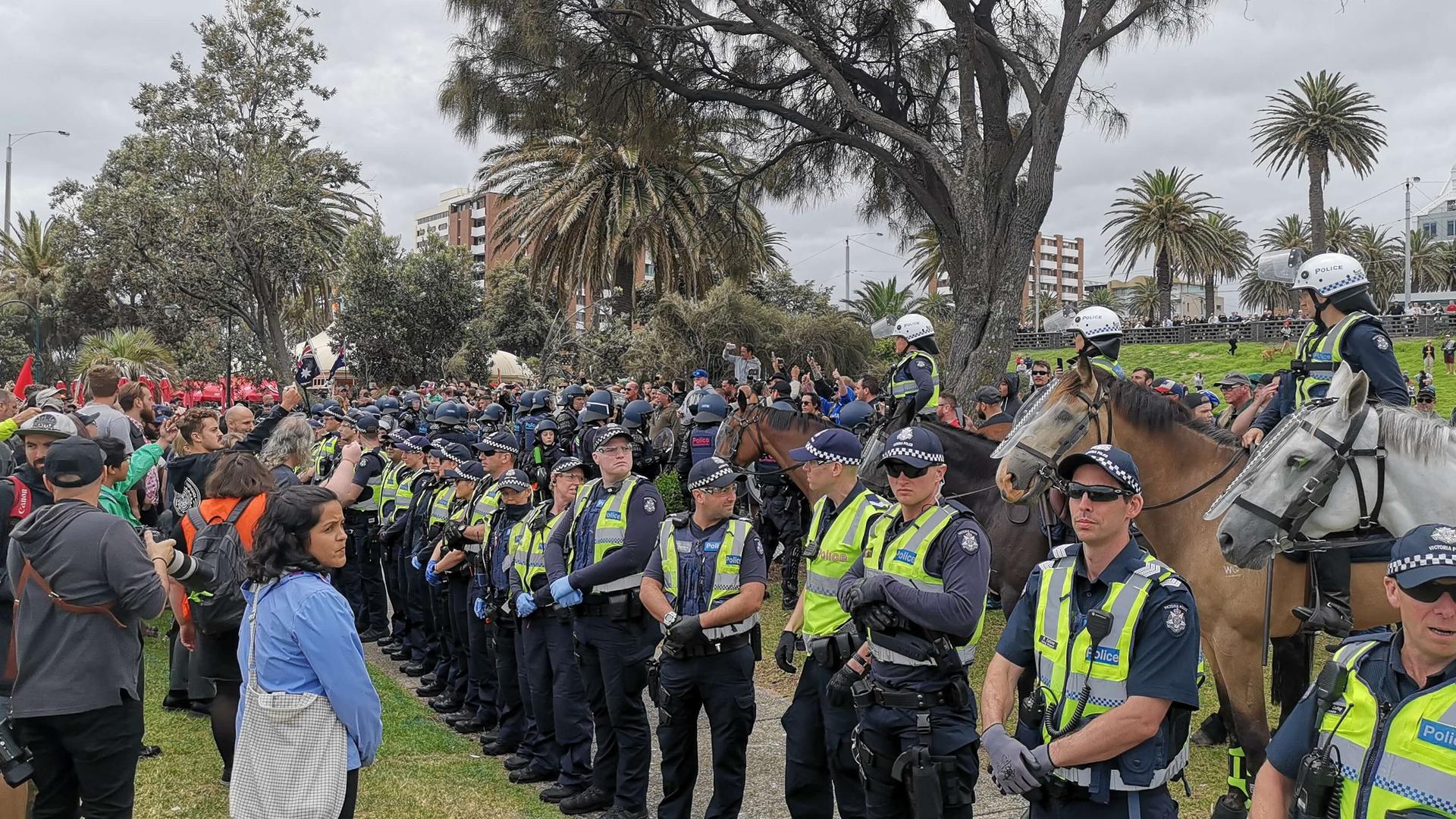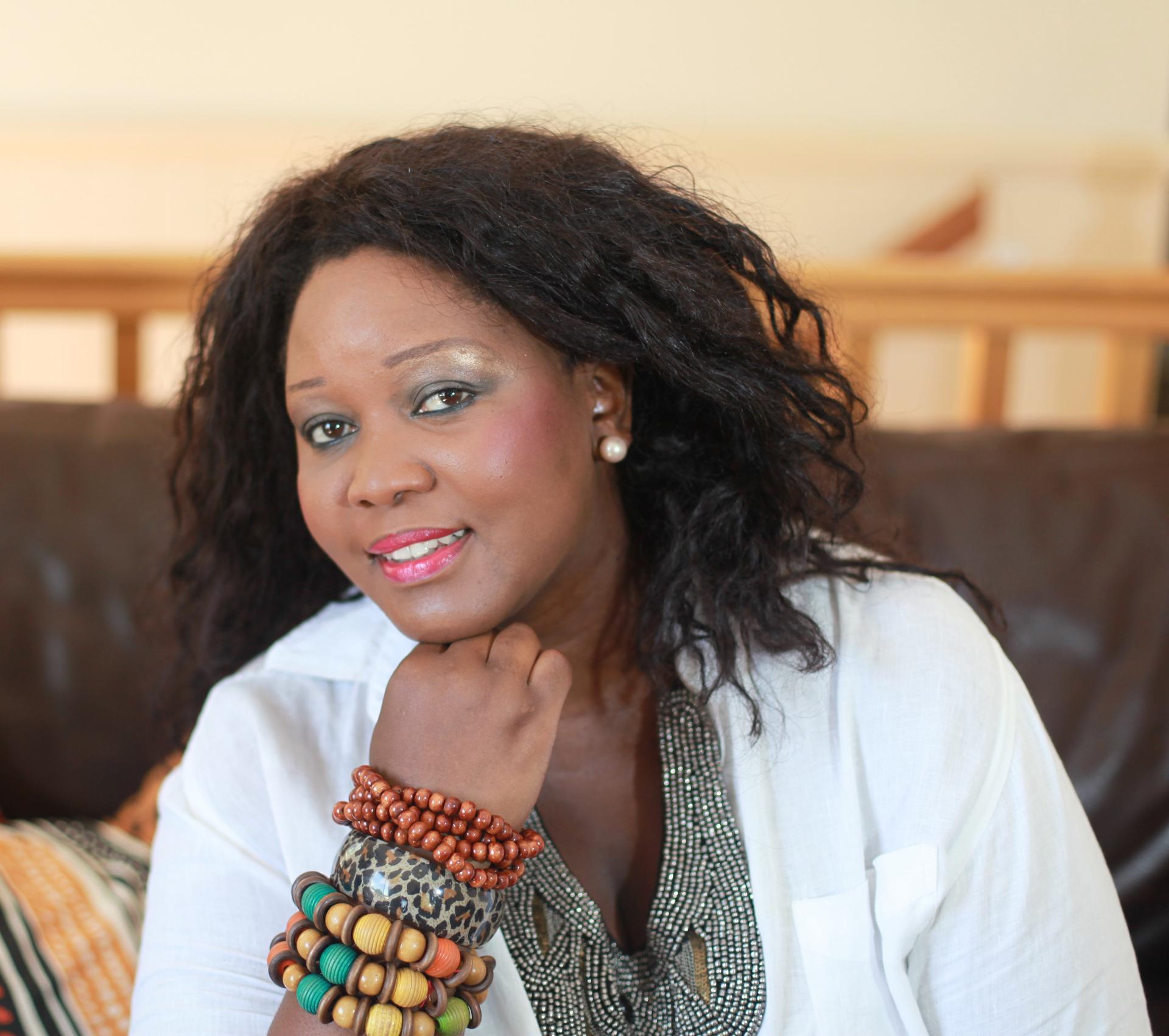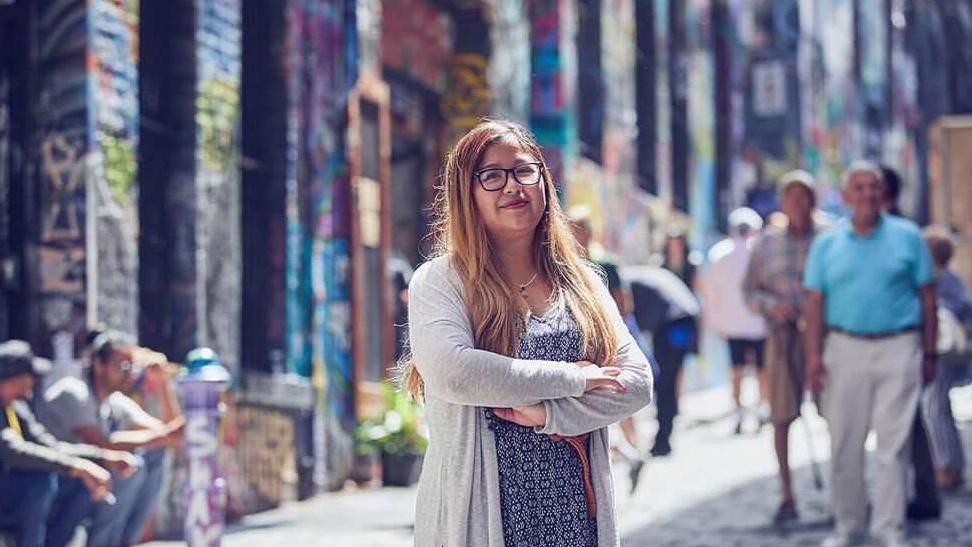Melbourne’s immigrant communities fight back against the rise of white supremacy in Australia
Celia Tran of the Vietnamese Community in Australia, Victoria Chapter, represents the Vietnamese Australian community and works to unite immigrant communities in Melbourne targeted by white supremacy.
Earlier this month, A Current Affair, an Australian, prime-time daily news program, aired a story claiming that Vietnamese communities in the eastern city of Melbourne, Australia, were engaged in a “race war” with the Sudanese community that was “about to erupt.”
The story featured an interview with Neil Erikson, a far-right extremist who has criminal convictions for stalking and racial vilification.
The Channel 9 story involved footage of two men, whom the reporter identified as Sudanese Australian, throwing chairs at a man at a cafe. The reporter suggested that this activity sparked a response from the Vietnamese Community in Australia, a nonprofit organization that represents Vietnamese Australians, to “fight back against African gangs.”
In response, neo-Nazi and other far-right groups held a rally on Jan. 5 in the historically Jewish neighborhood of St. Kilda in Melbourne’s inner east with the apparent aim of standing up to “migrant gangs” in Australia. Hundreds showed up.
This latest, racially charged series of events signals that white supremacy in Australia may have a growing, public presence, and immigrant communities in Melbourne are actively working to resist. On Jan. 26, the country will celebrate Australia Day marking the day the British arrived in Australia and began 231 years of colonization of Indigenous lands and peoples. Many Australians have argued that this date should be changed, but the current government has pushed a campaign to “save Australia Day,” promoting white heritage.

A manufactured ‘race war’
“The media keeps pitting our communities against each other,” said Celia Tran, a member of the Vietnamese Community in Australia, Victoria Chapter.
The media story claiming a race war and the subsequent white supremacist rally highlighted the widespread occurrence of racist violence against Indigenous people, migrants and refugees of color in Australia.
Fraser Anning, a senator for the northern state of Queensland in the national Parliament, attended the St. Kilda rally. Also, the rally came after the recent “it’s OK to be white” national parliamentary vote that members of the governing Australian Liberal Party supported (including the Minister for Indigenous Affairs), but ultimately, did not pass.
“We have the media and far-right extremist groups in Australia trying to pit two communities that already have had to fight through so much racism. … You’ll find strong solidarity between the various ethnic communities in Victoria as well as Indigenous people.”
“We have the media and far-right extremist groups in Australia trying to pit two communities that already have had to fight through so much racism,” Tran told The World.
Mainstream narratives of conflict between different migrant communities “has happened in the past, and it’s happening again and it’s absolutely disheartening to see this vicious cycle happen again,” Tran said.
“You’ll find strong solidarity between the various ethnic communities in Victoria as well as Indigenous people,” despite the narrative of a division, Tran said. The communities regularly find support in each other such as through shared refugee experiences. The Vietnamese Community put out a media release in late December in support of the Sudanese communities stereotyped in the media as violent and dangerous.
Australia became home to thousands of people fleeing war in Vietnam in 1975, and an estimated 220,000 people of Vietnamese ancestry now live in Australia. There are 19,369 people born in Sudan, and 3,487 born in South Sudan now living in Australia, many of whom left their home country to escape the civil wars there in the 1970s and ’80s.
Along with other African communities in Australia, South Sudanese, Sudanese as well as Vietnamese migrants and their children have been subject to both everyday racism and targeted white supremacist attacks.
“We’ve all been through a lot and understand the challenges that recently arrived communities are facing with regard to their young people and integration in a new country they call home.”
As for blaming African gangs for problems like robbery and affray, there is zero evidence of organized gangs of African migrants in Melbourne. These stereotypes — mainly targeting Sudanese Australians — were stoked most recently in the Victorian state election by the Liberal Party. Peter Dutton, a Liberal Party representative and national home affairs minister, lent support to his colleagues in Victoria by making false claims of increasing activity of African gangs that made people feel “afraid to dine out at restaurants.”
Data from Victoria’s Crime Statistics Agency indicates that Sudanese Australians make up about 0.1 percent of the population and account for 1 percent of alleged offenders, whereas Australian-born people comprised 71 percent of offenders in Victoria between 2017 and 2018.
“What we need is better media reporting and local solutions backed by resources,” Tran said.
Naming the problem
Mainstream reporting on the rally prompted an urgent conversation on the importance of language and words and to call out white supremacist activity when it occurs. Jason Wilson, a reporter for The Guardian, noted that “[in] the aftermath of a fascist rally, we commonly encounter the demand that we call it something else.”
For example, the Australian Broadcasting Corporation (ABC) insisted that rally constituents should be referred to as “people making Nazi salutes,” and ABC News reported them as being “far-right activists.”
The participants were from neo-Nazi and actively white supremacist groups including Blair Cottrell’s The Lads Society. Actions at the rally included Nazi salutes, and some adherents wore Nazi regalia.
Melbourne-based Andy Fleming has been researching and reporting independently on white supremacy in Australia for the past two decades. “The last few years have seen a minor increase in political activity by neo-Nazi and far-right extremists in Australia,” he told The World.
Fleming points to “Reclaim Australia,” a white supremacist protest movement that emerged in early 2015, as key to understanding white supremacy today. The movement, which ultimately faded, “had, at its core, a virulent Islamophobia” linked to the Lindt cafe siege of December 2014, when a lone gunman claiming a connection to ISIS took hostages.
While Reclaim Australia was “not neo-Nazi,” said Fleming, it did create a political space in which neo-Nazis and other far-right extremists could assume leadership roles, and did.”
Within this space, “[Neo-Nazi] activists were careful to publicly express their politics in coded language and sought to keep its franker expressions to private forums.”
Online recruitment and public protests have continued into the present, finding resonance with some Australian government policies, Fleming said. This includes involvement in the “war on terror” in Afghanistan and Iraq, a bipartisan commitment to the offshore, indefinite detention of asylum-seekers and refugees from Middle Eastern, Asian and African countries, and the refusal to reform constitutional law to recognize Indigenous sovereignty.
“In many ways, the kinds of political pronouncements issued by Reclaim resounded because they reflected key aspects of contemporary Australian politics.”
“Modern Australia was founded on white supremacy,” noted writer and activist Luke Pearson in The Guardian earlier this month. Founder of the Indigenous digital media platform IndigenousX, Pearson went on to explain: “The White Australia policy [through which non-white migrants were prevented from entering Australia] was in effect from 1901 [the year of Australia’s federation as a nation] to 1973.”
“The white supremacist mindset that led to that policy (and before then justified the dispossession, exploitation, exclusion, segregation and oppression of Indigenous people) has never really left the national discourse or political landscape.”
“When you’ve got people making Nazi salutes and brandishing SS paraphernalia during a racist rally, it’s pretty shocking to see how many moderates in Australia go to such extreme lengths to not apply the term ‘Nazi’ or ‘neo-Nazi’ to such people.”
For Pearson, “when you’ve got people making Nazi salutes and brandishing SS paraphernalia during a racist rally, it’s pretty shocking to see how many moderates in Australia go to such extreme lengths to not apply the term, ‘Nazi,’ or “neo-Nazi,” to such people,” he told The World.
“That shows me we’ve still got a long way to go before Australia will be capable of naming white supremacy in other areas of Australia society.”
Fighting the threat to people of color in Australia

“What the media is doing by using terms such as race war is to amplify the negative content of their story with a very clear intention of causing a ‘mass community concern’ about nonwhite communities, said Sharon Orapeleng, a mental health professional and community advocate for African Australians.
Politician Anning had flown from Queensland in the far north of the country to attend the rally in St. Kilda, claiming that African gangs were a problem within his constituency. Anning has since been revealed to have close connections to several Australian neo-Nazis.
“The threat of far-right extremism is huge to communities of color,” said Tim Lo Surdo, founding director of Democracy in Colour, an Australian national racial justice advocacy organization led by people of color.
Speaking to The World, Lo Surdo noted that “[last] year, Victorian community legal centers reported a 50 percent increase in people seeking help for racist hate crimes.”
“This is a direct result of a cynical, and perverse, politics of fear practiced by political con artists desperate to weaponize our differences.”
Lo Surdo said that affected communities are fighting back. For example, “Democracy in Colour is responding to this threat by holding politicians to account for their fearmongering,” he said.
“Last year, Victorian community legal centers reported a 50 percent increase in people seeking help for racist hate crimes. This is a direct result of a cynical and perverse politics of fear practiced by political con artists desperate to weaponize our differences.”
During last year’s Victorian state election, Lo Surdo and his team led a “targeted field campaign in marginal electorates asking people to vote #StrongerThanFear and reject politicians who race-bait on crime.” They “plan to run a similar campaign for the upcoming Federal election and will work directly with affected communities by organizing campaign management trainings,” said Lo Surdo.
The fact that people are attempting to hold neo-Nazi groups accountable, “along with those who attempt to downplay the serious threat they represent,” is encouraging, said Luke Pearson. The #IndigenousX platform is currently leading a campaign to #ChangeTheNation by righting past wrongs against faced by Indigenous people throughout Australia’s history of invasion, genocide and continuing racism.
“I’d like to see more people calling these individuals and groups out to ensure they do not go unchallenged in their growing efforts to pass themselves off as anything other than extreme, dangerous, white supremacists,” he said.
Our coverage reaches millions each week, but only a small fraction of listeners contribute to sustain our program. We still need 224 more people to donate $100 or $10/monthly to unlock our $67,000 match. Will you help us get there today?
